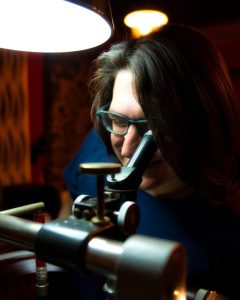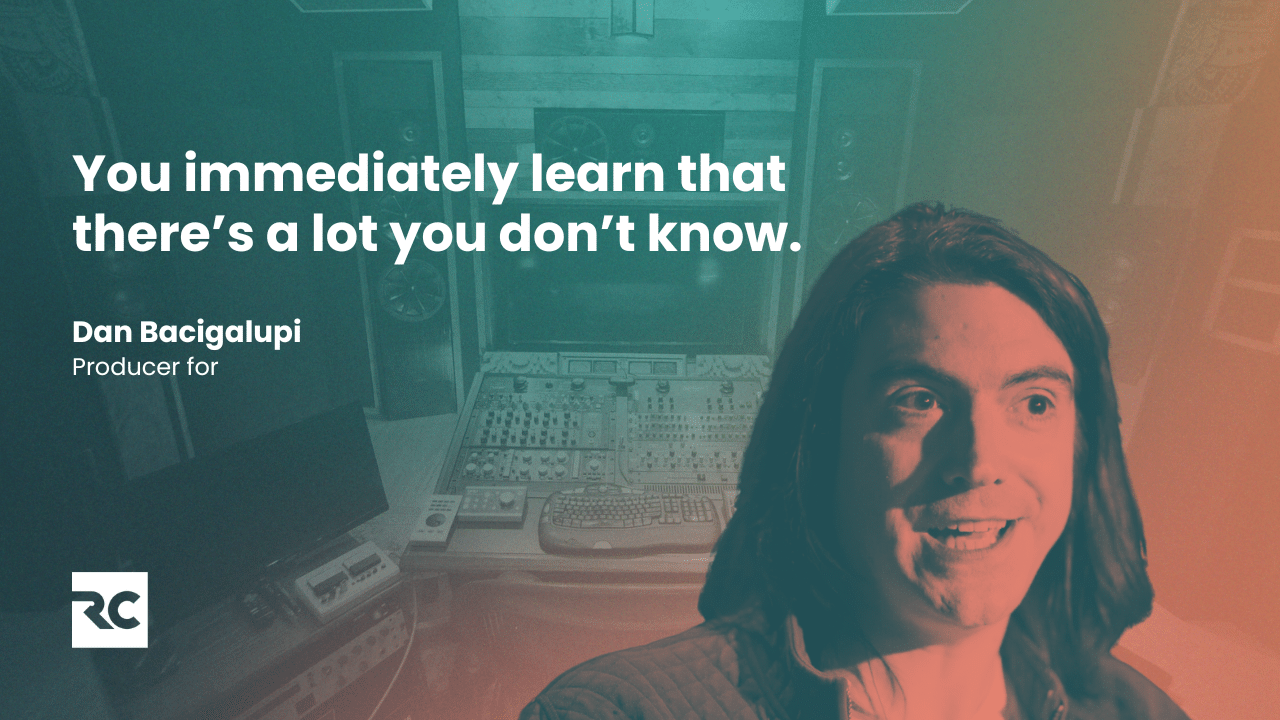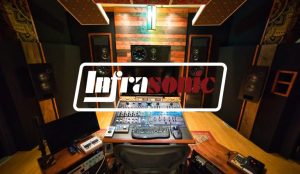Daniel Bacigalupi is a mastering engineer at Infrasonic, in Nashville, Tennessee.
Can you tell us a bit about your background?
I grew up in the middle of nowhere in Minnesota, in a tiny little town called Pine City; 3000 people and more pine trees than people for sure. I was the last of six kids, and it was a long time between me and my last siblings. I kind of grew up like an only child– my closest brother was 13, when I was born, and my oldest was 18.
How did you get interested in music?
My family was a really musical family. My dad was the band director at our high school. He also was a piano tuner and played a lot of jazz, folk, and rock guitar. That was [how I got interested in music]; being involved with them. Whether it was band rehearsal or they were playing with various groups from town. I was always exposed to music and spent a lot of years as a little kid listening to my dad tune pianos.
When did you start forming your own musical identity outside of your family?
I was probably a little late getting into popular music. I had listened to a lot of things that my parents had done as a little kid, but it wasn’t until I went to the public library [and found] Nirvana’s Nevermind [that I really started forging my own musical path]. My mom almost took the CD away, because it was “edgy.” But she didn’t, and I listened to it. The first time I heard that album was this moment of, “Wow.” I didn’t even know that sounds like that existed. I immediately fell in love with rock music. I got a guitar and started playing.
Why do you think that album, in particular, spoke to you?
I think when you’re 12 or 13, you’re just kind of at that transition period of life where you simultaneously hate and love everything all at the same time. There’s so many emotions. That record, to me, sounded like the inside of my head, like it was a chance to hear music that made me emotionally feel something almost uncontrollable. It got deep into my brain in a way that nothing had at that point. And it was also the idea, especially with a record like that one, that you could be loud and angry and angsty. That there was an artistic outlet for that, which I don’t think I really understood or knew that there was at that point.
That was the first catalyst of me trying to make myself sound like the records [I was listening to]. I distinctly remember playing [my new guitar] along with records and [experimenting] with the guitar amps and whatnot to get the sounds I wanted. It was really advantageous having a dad that was a guitar player, because when I’d have a question or interest, he immediately knew what to show me or teach me.
How did you transition from experimenting at your house to pursuing music as a career?
I realized that [music] was what I wanted to do. I didn’t know what the jobs even looked like. I come from a family of teachers and they said, “Well, let’s research what degrees would be involved with this as a job and start there.” My parents were like, “How do we get you educated in this?” So I Googled (literally), “Sound recording audio school,” and got three options. My goal was to get into a school. I got a Bachelors of Music. It was really important for me and to my parents as a bit of security.

Do you have any regrets about the educational path you chose?
I would have done a little more research on just how many options of schools there were at the time. Also, understanding that the price differences do not always equate to quality differences. I went to a private school and it was very, very expensive. And now after moving here, and meeting a lot of kids who have gone to MTSU, they are just as knowledgeable and their education was in some ways, arguably, better.
I wish I had pursued more communication with people who were actually doing recording and mixing professionally, to get a little bit more of an idea of the best direction to go. The aspect that I think makes an audio school really stand out is the connections that that school has outside of the school. The core bit of knowledge is pretty much the same everywhere. What gets kids in the door at studios is that they have a professor who knows someone who’s in this part of the industry.
While in college you found a formative mentor at an internship, right?
Yeah, Tom Cohen at Sterling sound. I got to go be Tom’s assistant for a summer. That was my introduction to mastering and I realized that mastering was something that my brain really liked more than anything else. It was less decisions with higher consequences, if that makes sense. That was better for my type of thinking. When I got back to school after the internship, I told my professor [Alex Perry], “I want to do mastering! This is great!” He had a connection with Andrew Mendelssohn at Georgetown Masters, here in Nashville. I came down after I’d graduated, went to Georgetown and got hired there within a few months after interning, which was amazing. That was kind of the start of that journey.
What was the hardest part about working in the ‘real world?’
For me, I think the biggest challenge for anyone when they start their first job outside of college is immediately learning that there’s a whole lot that they don’t know. I would say 90% of the knowledge I have about how digital audio works, how analog audio works, and gear all came from that first job. I had to learn to get over my ego about it a little bit. You realize that you don’t know everything, and that a lot of people know a lot more than you even though you may have just come out of school.
When do you think you realized that you weren’t a small fry any more? A time when you looked around and thought, ‘I’m the real deal!’
The one time that stands out the most was when I was with a group of friends walking down the Las Vegas Strip, and a song that I had mastered was playing over one of the speakers. I got to be like, “Oh, I mastered this.” And everyone just was like, “That’s crazy.” And that was the moment where I was like, “Oh, the masses are listening to what I do.” It was fun to think, “All that sound went through my desk and my decisions.” That was the moment where I was like, “Okay, I think I’ve kind of made it.”
Now, I’m not really that interested in continuing to hit any sort of milestones. I just want to work with really cool people who make really good music that I believe in. I get more joy out of that than trying to actually hit any kind of milestones. I’ve let go of that stress of feeling like I always need to get to the next thing. Getting rid of that mentality has actually been really helpful for me and just my mental health and feeling really good about my career.
What do you wish you had known at the beginning of your career?
I would like to go back to myself and say, “Enjoy life a little bit more.” I really wish that I had looked around a little more often and said, “This is crazy!” You get to work with some of the biggest artists in the world all the time. Every day you get paid to listen to music, which is the dream, right? The other thing I would also tell myself is to take a few more risks. There may have been situations where I missed opportunities to advance my career. I think fear of failure when you’re young can be very real. And I think that that was kind of something that held me back a little bit. I failed so much along the way and I’ve learned that it’s okay, it’s okay to make mistakes.


